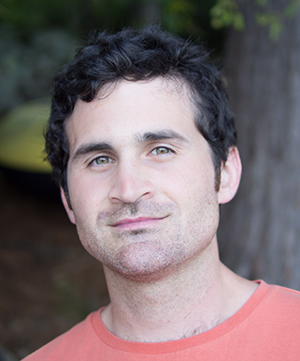Gus Cooney, 29, Psychology
Gus Cooney’s story is sort of that of a real-life Good Will Hunting.
He grew up in South Boston, the rough, working-class neighborhood made famous by the Matt Damon film. When young men from Southie manage to graduate from high school, it’s notable. Even when they do, they barely ever go to college, much less get a Ph.D. from Harvard. But Cooney’s intellectual gifts and remarkable drive gave him an unlikely launch out of his hardscrabble circumstances.
As a child, it was unfathomable to Cooney that someone could get paid to think about ideas. But after high school, he went to Boston University on full scholarship and declared his major: philosophy.
(Photo: Gus Cooney)

“I was most interested in questions about how we ought to live and about human decision-making,” he says. “After a number of years, it became clear that the most striking research on these issues was being done at the hands of psychologists. So I switched fields.”
He was working as a data analyst at a land-management institute when he encountered the writings of Daniel Gilbert, the famous Harvard social psychologist. Cooney went to Gilbert’s office, knocked on his door, and asked Gilbert whether he thought science could actually answer the deep questions that philosophers could only talk about. By the end of their conversation, Cooney was enlisted as Gilbert’s lab assistant.
While Cooney started to become Gilbert’s protégé, he made it a point to learn research methods and statistics, then sent out applications to psychology Ph.D. programs. He got into all of the best ones. “I was delighted,” Gilbert says, “when he turned them all down and decided to remain at Harvard as my graduate student.”
Cooney calls where he is now “the happiest of homes” and says of Gilbert, “he taught me to think big interesting ideas, ask rigorous empirical questions, and shape truly beautiful stories.”
Though he doesn’t have his doctorate yet, Cooney has already forged some fascinating concepts and made some key findings.
First, in looking at answers to a set of questions that he and Gilbert added to the city of Somerville’s annual census, Cooney was able to tell that the happiest people are those who consider themselves most similar to others. This seemed to be true despite social psychology’s presumption that most people are scared of not being unique enough. Cooney constructed experiments to confirm his observation, each of which affirmed it: Trying to be too different from others detracts from happiness.
His second finding is based on the idea that good conversations adhere to the “given-new contract,” a tacit agreement that what’s said should contain both old and novel information. Cooney hypothesized that people think that conveying something new is most important when in fact speakers are most effective when they incorporate something the listener already knows. He tested his theory by asking people to describe a movie. The results were clear: Most people chose to talk about a movie others hadn’t seen, while listeners far preferred to hear about a film that they had seen. Cooney is now designing studies to figure out why this should be.
“The social world doesn’t come complete with a handbook or a travel guide,” he says, “and so our everyday lives are filled with errors and wrong turns. I study these mistakes, what they reveal about our species, and what we can do to fix them.”
According to Gilbert, Cooney is unusually suited for this type of work: “Gus has a great eye for phenomena, a great nose for experiments, and a great ear for ideas…. He notices what others don’t, and he has already developed that rare ability to take the ordinary stuff of daily life, interrogate it, dissect it, analyze it, bottle it, and turn it into a deep insight about the human condition.”
Perhaps that’s because Cooney enjoys going after far-fetched goals. “It’s exciting to work against something so immense,” he says. “There’s great pleasure when it yields. Science is like this. It’s difficult to ask the right questions but when you get an answer, it’s a brand new truth about the world, and you get to author the story.”
See our complete 2014 list of the 30 top thinkers under 30 here.


